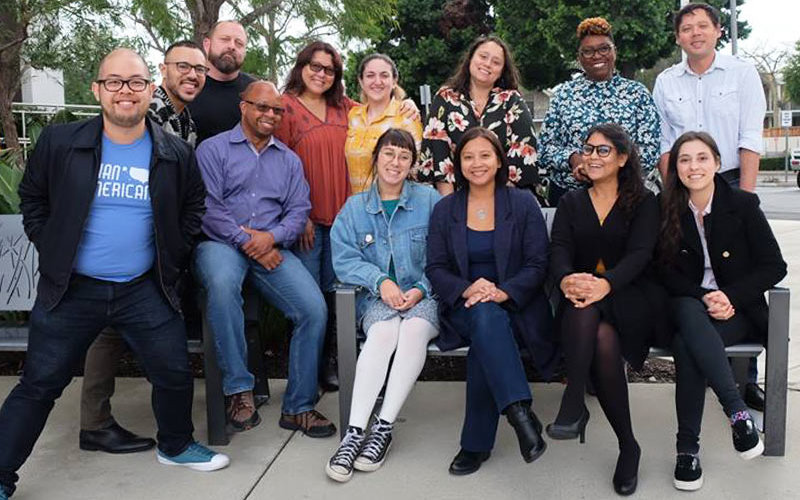
When Jesús Ayala, lecturer in communications, heard that NPR’s Next Generation Radio Project was coming to Cal State Fullerton, it was, in his words, “a full circle moment.”
Ayala himself had been a student participant in the program, and with the encouragement of Next Generation Radio founder, Doug Mitchell, he had found his way to a successful career as a producer for ABC News. Ayala immediately volunteered to be a mentor for the program at CSUF.
Waleed Rashidi, assistant professor of communications, and Jay Seidel ’06 (M.A. communications), department coordinator of media studies at Fullerton College, worked for two years to bring the Next Generation Radio Project to the university, and Jan. 14-18, it finally came to fruition.
Six competitively selected students, five from CSUF, began working one-on-one with their mentors — professional journalists from NPR stations and broadcast TV — to report and produce three-minute, non-narrated stories about immigrants and their initial experiences in America.
The students dove in, learning everything from how to obtain high-quality audio recordings to how to get good sound bites and edit, explained Ayala. Beyond the hands-on practice and networking opportunities with the mentors, however, participants realized something more personal from the project.
“Looking back at this experience, it exceeded my expectations in every way,” says Madeline Gray, a junior majoring in communications-journalism. “I feel as if with each day I made immense growth, not only as a journalist, but as a person.”
Ayala agrees that students had to quickly change their mindset and embrace new challenges, which led to growth. “At first, realizing how much goes into one story and the expectations for them, the students had imposter syndrome, the feeling of ‘I don’t belong here.’ The week was all about getting out of their comfort zone.”
For example, participants were required to reach beyond their own ethnic background to find a subject to interview, and they had to expand the way they connected and collected news. Instead of comfortably texting and emailing, students had to cold-call by phone and contact their subjects in person.
Ayala also believes the Next Generation Radio Project provides students with a true multimedia experience. In addition to the video product, they wrote about their subject, inserted infographics and integrated social media. “This is a comprehensive way of doing a story and is the current and future climate of news,” says Ayala.
To see the students’ projects and learn more about NPR Next Generation Radio, visit csuf2019.nextgenerationradio.org.